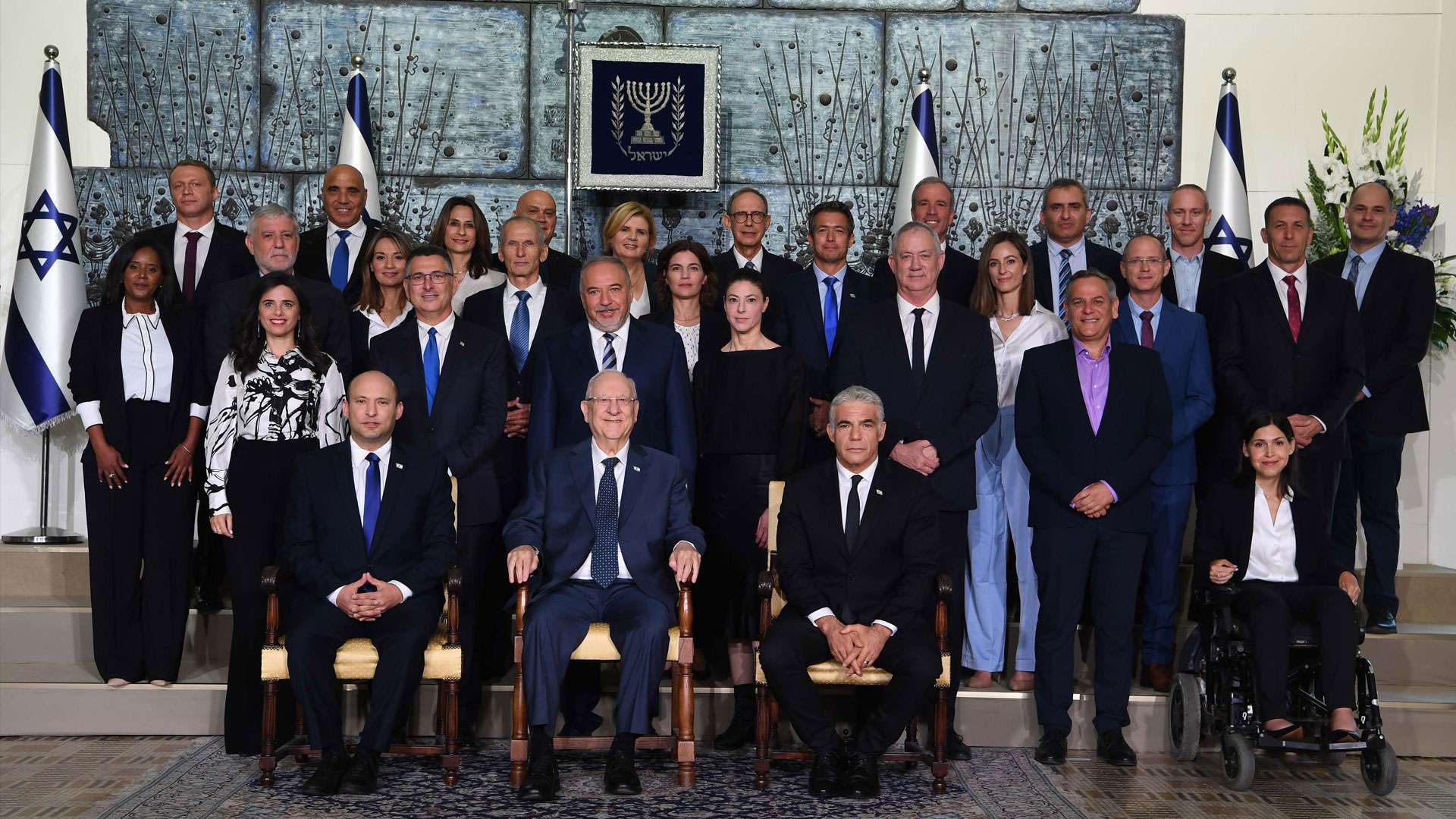This Israeli government coalition of eight different parties with a wide variety of ideologies, has already had to weather numerous challenges.
Only having been brought in by a vote of 60 to 59 (with one abstention from within itself from Ra’am and one defection from Prime Minister Bennett’s own party), almost any individual can bring it down.
However, this government’s actions are dominated by three people of its own and one other—Opposition Leader Netanyahu.
The three inside the government are Prime Minster Bennett, Foreign Minister Lapid and Mansour Abbas who heads the largely Israeli Arab fundamentalist, conservative Ra’am party.
Behind Bennett and Lapid are the coalition agreements between the governing parties.
It should be noted that all seven parties have made coalition agreements with Lapid. Whilst Bennett who has also signed a coalition deal with Lapid, has none with any of the other members.
So in any contentious coalition matter there will always be a question of who wins out—Bennett or Lapid—and on certain matters, Abbas.
Let’s examine how precarious this coalition is and how it has to operate, by taking just two of the many possible case studies already, in such a short period of just six weeks.
1. The Citizenship and Entry Law was brought in during the 2nd Intifada in 2003 to prevent terrorists slipping into Israel under the guise of family reunification.
It has been renewed and passed annually ever since.
About 130,000 Palestinians entered Israel and received citizenship or residency via family reunification between 1993 and 2003.
Since 2001, some 155 individuals involved in terrorist activities obtained entry to Israel under family reunification laws, according to the Shin Bet.
It is expected that some 200,000 Palestinians would gain Israeli citizenship or residency each decade were it not for this legislation.
Therefore, this family reunification presents both a security and a demographic challenge.
As Lapid said on the 5th of July earlier this month: “This is one of the tools designed to ensure the Jewish majority of the State of Israel. Israel is the nation-state of the Jewish people, and our goal is that it should have a Jewish majority.”
The legislation is one of the most contentious issues within the coalition itself, with both Ra’am and Meretz either opposing or not supporting the concept of Israel being a Jewish State.
After amendments to try and assuage some of the government’s own members, the legislation went to a Knesset vote on the 6th of July.
The result—59 to 59. The legislation did not pass.
One government, with on this issue—three very different views and polices.
Two members of Ra’am abstained and one of Bennett’s own party also refused to vote for it.
Ironically Meretz voted in favour of the legislation. But then expressed relief that the government they are part of, failed to pass its own motion, with some even questioning how they had supported it in the first place.
Just as counterintuitively, the Likud, who had always supported this legislation and still believe in it, were willing to now oppose it in order to try and bring down the government—also a pointer to future voting trends.
As Haviv Rettig Gur wrote, they did so “on the principle that denying the coalition successes is the priority.”
In unlikely scenes, the Likud found itself celebrating the defeat of this legislation together with the other Israeli Arab party on the opposition bench, the Joint List.
2. Last week was Tisha B’Av (the 9th of Av), a very special day which commemorates amongst other tragedies, most importantly, the destruction of the First and Second Temples.
Unfortunately the status quo agreement of longstanding, is that whilst Jews can ascend the Temple Mount they are not allowed to pray there. Moslems however, can.
Prime Minister Bennett is keen to see a greater Jewish presence on the Temple Mount.
In the last few years, some Jews have prayed discreetly on the Temple Mount, without fanfare or government declaration.
This year however, Bennett as PM, issued a tweet hailing the “maintaining of Jewish worship” at the site.
Soon after, Foreign Minister Lapid, after speaking with Bennett, told journalists that there was in fact no change to the status quo.
Moreover, Lapid also spoke with the Jordanians and to representatives of the King, explaining that no changes had taken place on the Temple Mount.
Bennett himself was silent.
The Israeli press reported that then Bennett’s office issued a clarification stating saying that he had meant to say “freedom of visit for Jews and not freedom of worship”.
Mansour Abbas, from within the coalition issued his own statement saying “Al-Aqsa Mosque is a pure right of Muslims, and others have no right to it.”
One government, with on this issue—three very different views and polices.
So what is the government’s actual policy? And who expresses it?
Generally on issues of Jewish State and Jewish rights, Abbas is likely to be a thorn in his own government’s side.
Notwithstanding all of this, to date, no party has left or even threatened to leave the coalition.
It is also very interesting to note that Hamas who had begun the recent war in May with one of its false pretexts being to ‘defend Jerusalem’, did absolutely nothing in this case.
—–
It is quite some achievement that under these circumstances this government is still in existence and indeed in some areas gives the appearance of competence and ability.
A budget needs to be passed in early November. Israel has now not legislated one for some three years. The budget will be the real test of internal stresses and strains for this government, as each coalition member pushes for their own projects and desires to be included.
There is indeed a rocky road ahead to deliver stable government.












0 Comments